Are we headed for ‘collective suicide’?
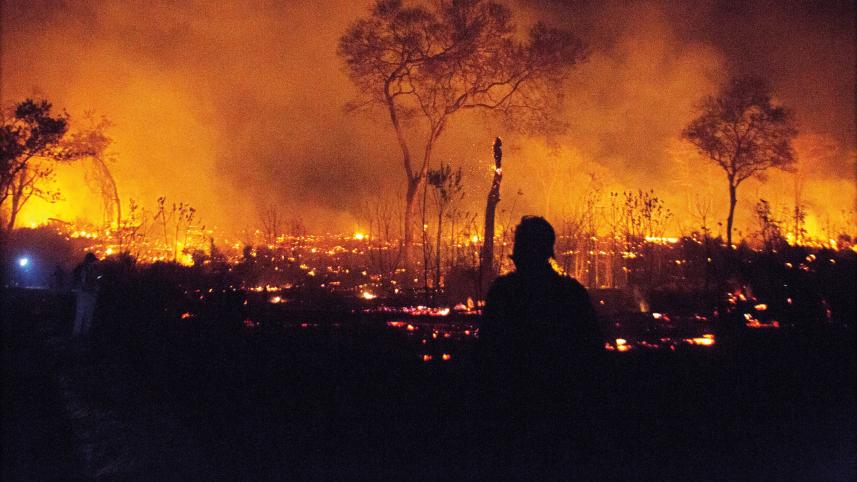
- Earth will be home to 9.7 billion people by 2050
- We need the biocapacity of 1.75 Earths to sustainably meet the needs of the current population
- If everyone on the planet lived like a citizen of India, we would only need the capacity of 0.8 Earths a year
- If we all consumed like a resident of the United States, we would need five Earths a year.
Amid war, devastations, and new divisions, the world population crossed 8 billion on November 15. This comes at a time when world leaders are accused of sleepwalking into a crisis that might prove to be too costly for humanity as we know it-- climate crisis.
But are eight billion humans too many for planet Earth?
Most experts say the bigger problem is the overconsumption of resources by the wealthiest residents.
"Eight billion people, it is a momentous milestone for humanity," said United Nations Population Fund chief Natalia Kanem, hailing an increase in life expectancy and fewer maternal and child deaths.
Since the COP26 summit in Glasgow, which also agreed to 1.5C warming, activists and UN say the main polluters have failed to live up to their promises. In some cases, they accuse, the rich nations have backtracked on their key climate pledges.
"Yet, I realize this moment might not be celebrated by all. Some express concerns that our world is overpopulated. I am here to say clearly that the sheer number of human lives is not a cause for fear."
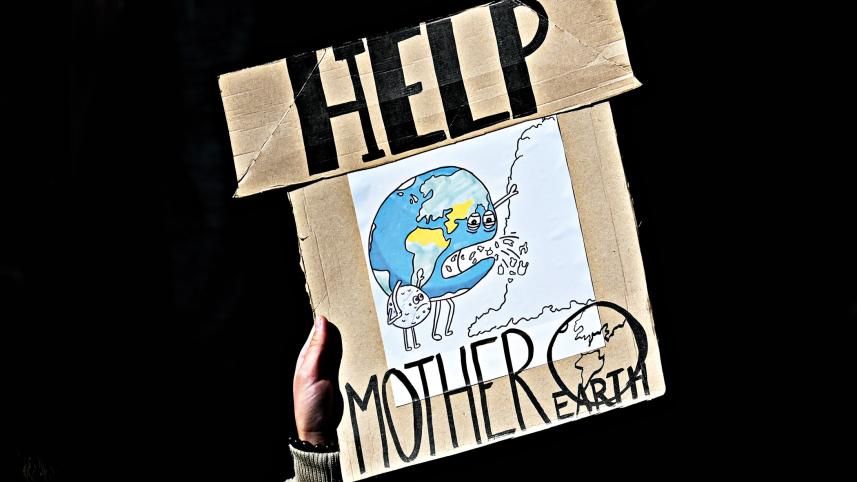
So, are there too many of us for Earth to sustain?
Many experts say that this is the wrong question. Instead of the fear of overpopulation, we should focus on the overconsumption of the planet's resources by the wealthiest among us.
"Too many for whom, too many for what? If you ask me, am I too many? I don't think so," Joel Cohen of Rockefeller University's Laboratory of Populations told AFP.
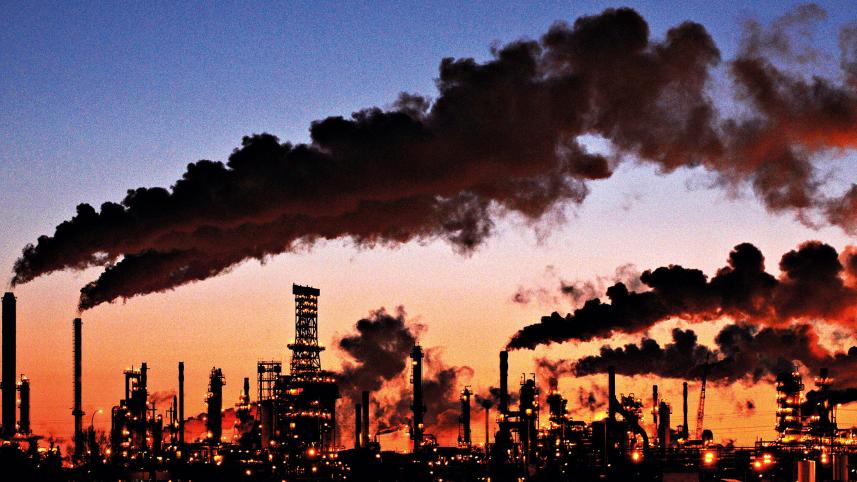
He said the question of how many people Earth can support has two sides: natural limits and human choices.
Our choices result in humans consuming far more biological resources, such as forests and land, than the planet can regenerate each year.
The overconsumption of fossil fuels, for example, leads to more carbon dioxide emissions, responsible for global warming.
We would need the biocapacity of 1.75 Earths to sustainably meet the needs of the current population, according to the Global Footprint Network and WWF NGOs.
The most recent UN climate report mentions population growth as one of the main drivers of an increase in greenhouse gases. However, it plays a smaller role than economic growth.
"We are stupid. We lacked foresight. We are greedy. We don't use the information we have. That's where the choices and the problems lie," said Cohen.
However, he rejects the idea that humans are a curse on the planet, saying people should be given better choices.
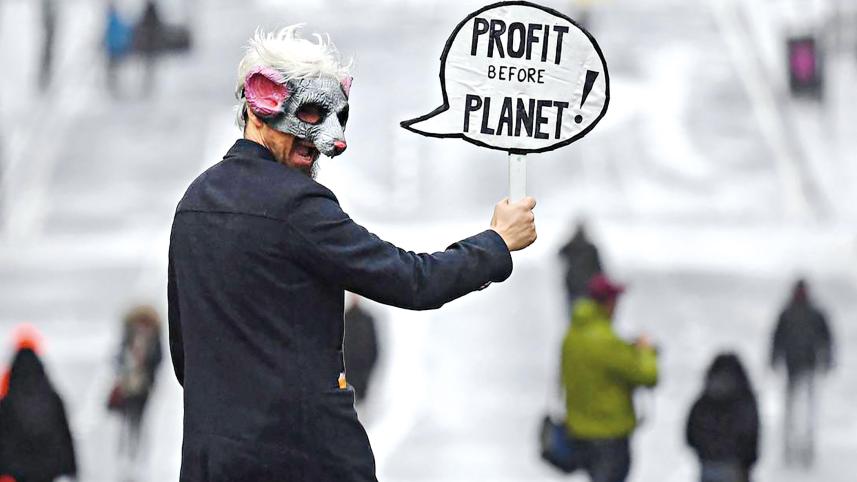
"Our impact on the planet is driven far more by our behavior than by our numbers," said Jennifer Sciubba, a researcher at the Wilson Center, a think tank.
"It's lazy and damaging to keep going back to overpopulation," she added, as this allows people in wealthy nations, who consume the most, to cast the blame for the planet's woes onto developing countries where population growth is highest.
"Really, it's us. It's me and you, the air conditioning I enjoy, the pool I have outside, and the meat I eat at night that causes so much more damage."
If everyone on the planet lived like a citizen of India, we would only need the capacity of 0.8 Earths a year, according to the Global Footprint Network and WWF. If we all consumed like a resident of the United States, we would need five Earths a year.
The United Nations estimates that our planet will be home to 9.7 billion people by 2050.
Cohen points out that even if we currently produce enough food for 8 billion people, there are still 800 million people who are "chronically undernourished."
On November 7, at the start of the UN climate summit in Egypt, UN chief Antonio Guterres warned that nations must cooperate or face "collective suicide" in the fight against climate change.
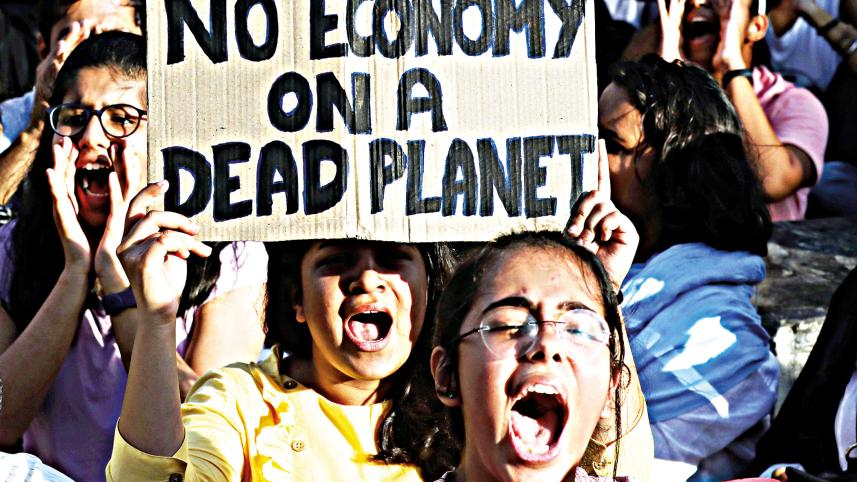
"Humanity has a choice: cooperate or perish," Guterres told the UN COP27 summit. "It is either a Climate Solidarity Pact or a Collective Suicide Pact," he added.
With further warming, some regions could become uninhabitable, as farmland turns into desert. Extreme temperatures can also increase the risk of wildfires - as seen in Europe, and Australia this summer.
On Thursday, the first draft of a deal being hashed out at the COP27 kept a target of limiting global warming to 1.5 degrees Celsius. It comes a day after the G20 nations agreed to keep the most ambitious goal of the 2015 Paris climate summit.
However, poor nations slammed the draft for failing to address their need for funds to cope with damage already being wrought by climate-driven storms, droughts and floods.
Rich countries are historically responsible for global warming and developing countries claim they have the right to develop and demand more compensation from the developed nations.
Meanwhile, a salvo of crises -- from Russia's invasion of Ukraine to soaring inflation and the lingering effects of the Covid pandemic -- have raised concerns that climate change has dropped down the priority list of governments.
And extreme weather events are already more intense across the globe, threatening lives and livelihoods.
With further warming, some regions could become uninhabitable, as farmland turns into desert. Extreme temperatures can also increase the risk of wildfires - as seen in Europe, and Australia this summer.
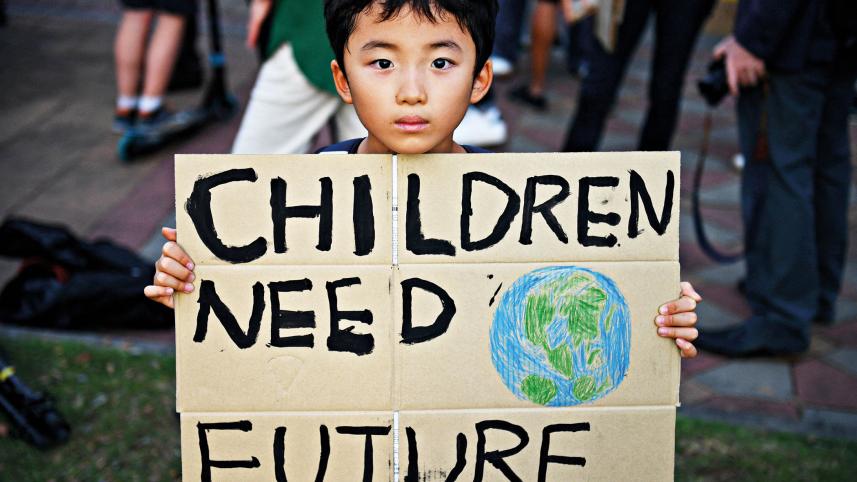
Hotter temperatures also mean that previously frozen ground will melt in places like Siberia or the Amazon forest will begin to release greenhouse gases trapped for centuries into the atmosphere, further worsening climate change.
In other regions, extreme rainfall is causing historic flooding - as seen recently in China, Pakistan and Nigeria.
But can climate change bring global societal collapse or human extinction?
In an analysis published in The Guardian, climate scientists have warned the risk has been "dangerously underexplored".
Though it had a small chance of occurring, given the uncertainties in future emissions and the climate system, cataclysmic scenarios could not be ruled out, they said.
Particularly concerning are tipping points, where a small rise in global temperature results in a big change in the climate, such as huge carbon emissions from an Amazon rainforest suffering major droughts and fires. Tipping points could trigger others in a cascade and some remained little studied, they said, such as the abrupt loss of stratocumulus cloud decks that could cause an additional 8C of global warming.
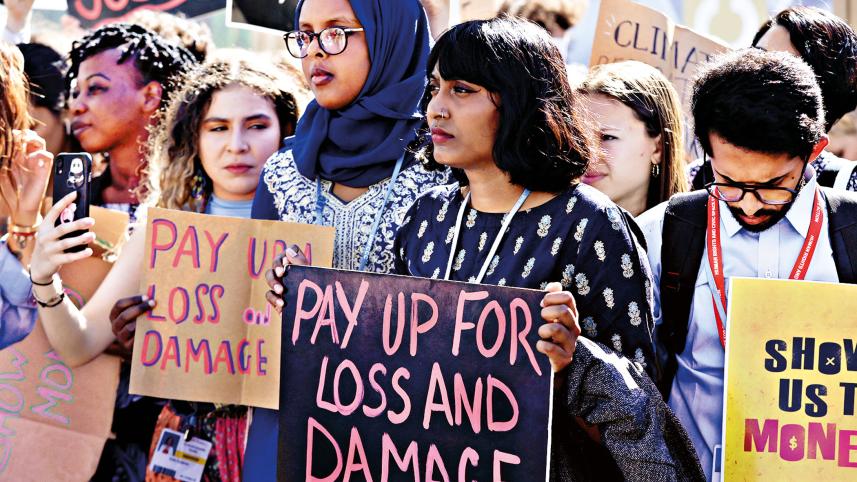
The researchers warn that climate breakdown could exacerbate or trigger other catastrophic risks, such as international wars or infectious disease pandemics, and worsen existing vulnerabilities such as poverty, crop failures and lack of water.
"There is a striking overlap between currently vulnerable states and future areas of extreme warming," the scientists said. "If current political fragility does not improve significantly in the coming decades, then a belt of instability with potentially serious ramifications could occur."
The current trend of greenhouse gas emissions would cause a rise of 2.1-3.9C by 2100. But if existing pledges of action are fully implemented, the range would be 1.9-3C. Achieving all long-term targets set to date would mean 1.7-2.6C of warming.
And serious doubts linger over the climate pledges by world leaders.
UN scientists say that global emissions must be slashed virtually in half by 2030, and after that, they should be reduced to net zero by 2050, if we want to keep global warming limited to 1.5C.
But since the COP26 summit in Glasgow, which also agreed to 1.5C warming, activists and UN say the main polluters have failed to live up to their promises. In some cases, they accuse, the rich nations have backtracked on key climate pledges.



 For all latest news, follow The Daily Star's Google News channel.
For all latest news, follow The Daily Star's Google News channel.
Comments